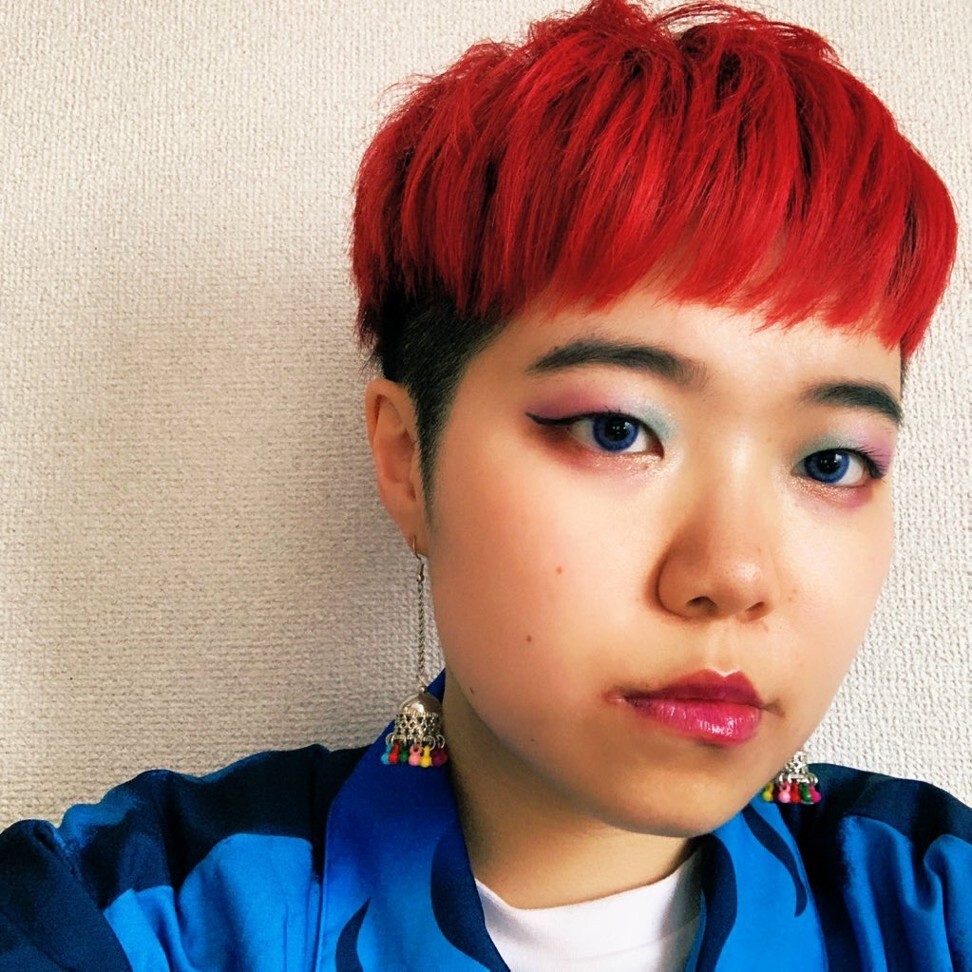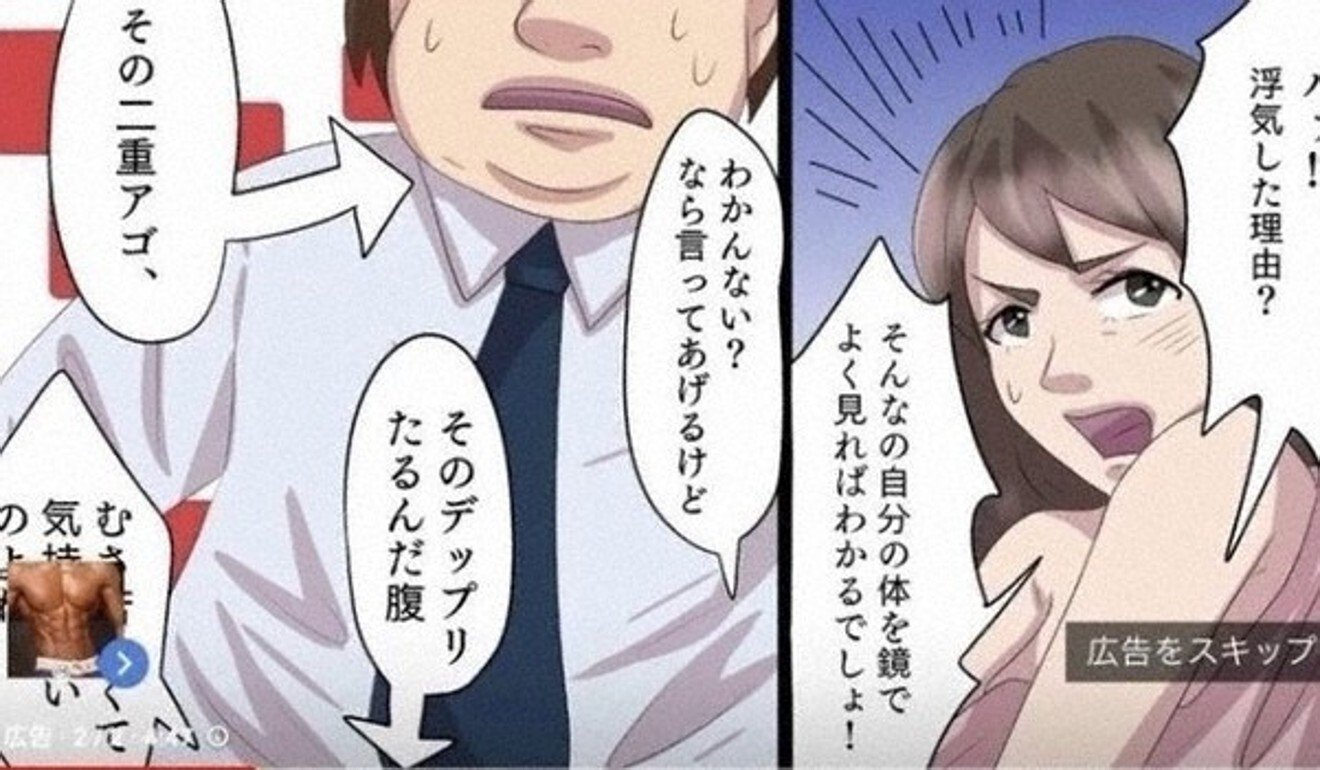
Japan’s ‘body-shaming’ manga adverts fuel online outrage, but maybe that’s the point
- A slew of ‘harder hitting’ adverts playing on young people’s insecurities and self esteem have appeared on Japanese social media, prompting a backlash
- Thousands have signed an online petition calling for their removal, but controversy could be what the advertisers were courting all along

A slender young man has his back turned to the viewer, dismissively waving a hand. In the foreground, a round-faced girl looks shocked as a tear trickles from the corner of one eye. The advert’s message is simple: buy our products, don’t get fat, keep the boy.
Such scenes, seemingly designed by advertisers to shame consumers into buying their products, are becoming increasingly commonplace on social media in Japan and the tactics they use have left 20-year-old design student Aoi Murata with a bad taste in her mouth.
“The first emotion that I had when I began to notice these sorts of advertisements was disgust,” she said. “To me, it is simply wrong to sell products by making people feel as if they are losers.”
The adverts in question can often be found attached to YouTube content in Japan and typically take the form of a short story presented as a manga with straplines such as “That double chin and fat belly is disgusting,” or “How can a person with so much acne get a girlfriend?”. They all end the same way, with the central character – and proxy for the customer – emerging slender and beautiful after using the advertiser’s products.
In a bid to put an end to such “body-shaming advertising”, Murata launched a petition on the change.org website calling on YouTube, in particular, to stop screening the ads.
She said she intends to send it to the video-sharing giant’s parent Google and three other companies that regularly use such adverts if she collects 35,000 signatures.
“These ads look down on people and shame them,” Murata said. “They do not target people who really want to lose weight or have beautiful hair, they seem to target people who have weak hearts.”
YouTube has already taken down some of the adverts following complaints, according to Murata, but new ones using similar tactics appear regularly.
Where these ads may have crossed the line is if they are too explicit in shaming, rather than implicitly causing anxiety
Adverts that play on consumers’ insecurities and self-esteem are “one of the most common forms there is”, according to Roy Larke, a senior lecturer in marketing at the University of Waikoto in New Zealand who specialises in Japanese retailing and consumer behaviour.
“The more the ads target a common area of insecurity, such as weight, skin, or so on, the more successful they are, although more subtle messaging is more common in the West,” he said.
“Where these ads may have crossed the line is if they are too explicit in shaming, rather than implicitly causing anxiety among those worried about the problem.”
In his experience, Larke said such adverts would ordinarily stress that the products being sold are “the solution to something that ‘everyone’ worries about” rather than imply that the consumer should be ashamed.

But advertisers targeting “younger, social media-savvy consumers, whose attention span and dwell-time on these types of ads is shorter than older generations” could feel they need to be “harder hitting as a way to gain greater attention”, he said.
The sharp increase in complaints about these “harder hitting” ads could be a reflection of this trend, with the Japan Advertising Review Organisation receiving around 90 complaints between February and May as compared to 15 in the same period last year, according to Murata.
Whether a wider backlash will emerge among the Japanese public is unclear, however. Larke said that while Japanese people are “inherently polite in their language and manner” they also tend to be “somewhat critical when comparing people and situations with what they think is the ‘norm’ or ‘socially acceptable’”.
The current crop of ads, however, take such criticisms much further “and would seem to denigrate people with these problems or perceived problems”, he said.

01:12
Overweight Chinese commuter fat-shamed in public, but some suspect it was staged
“This would simply reinforce the views of critical individuals and would likely be seen as inappropriate in some markets.”
At the time of publication, Murata’s petition was nearing its target, having been signed nearly 32,000 times. Supporters have used it to express their reactions to body-shaming advertising with several describing their anger at feeling humiliated.
“For me, a person with an eating disorder, these ads are toxic,” said one poster. “And it is terrible that we live in a world where such advertising makes healthy young women ill.”